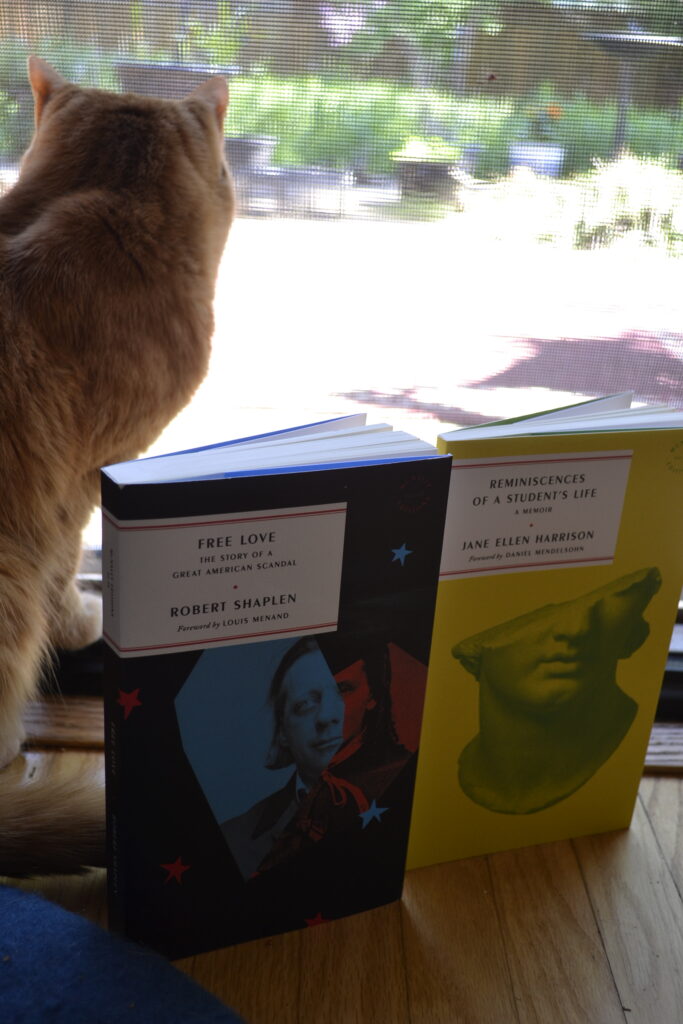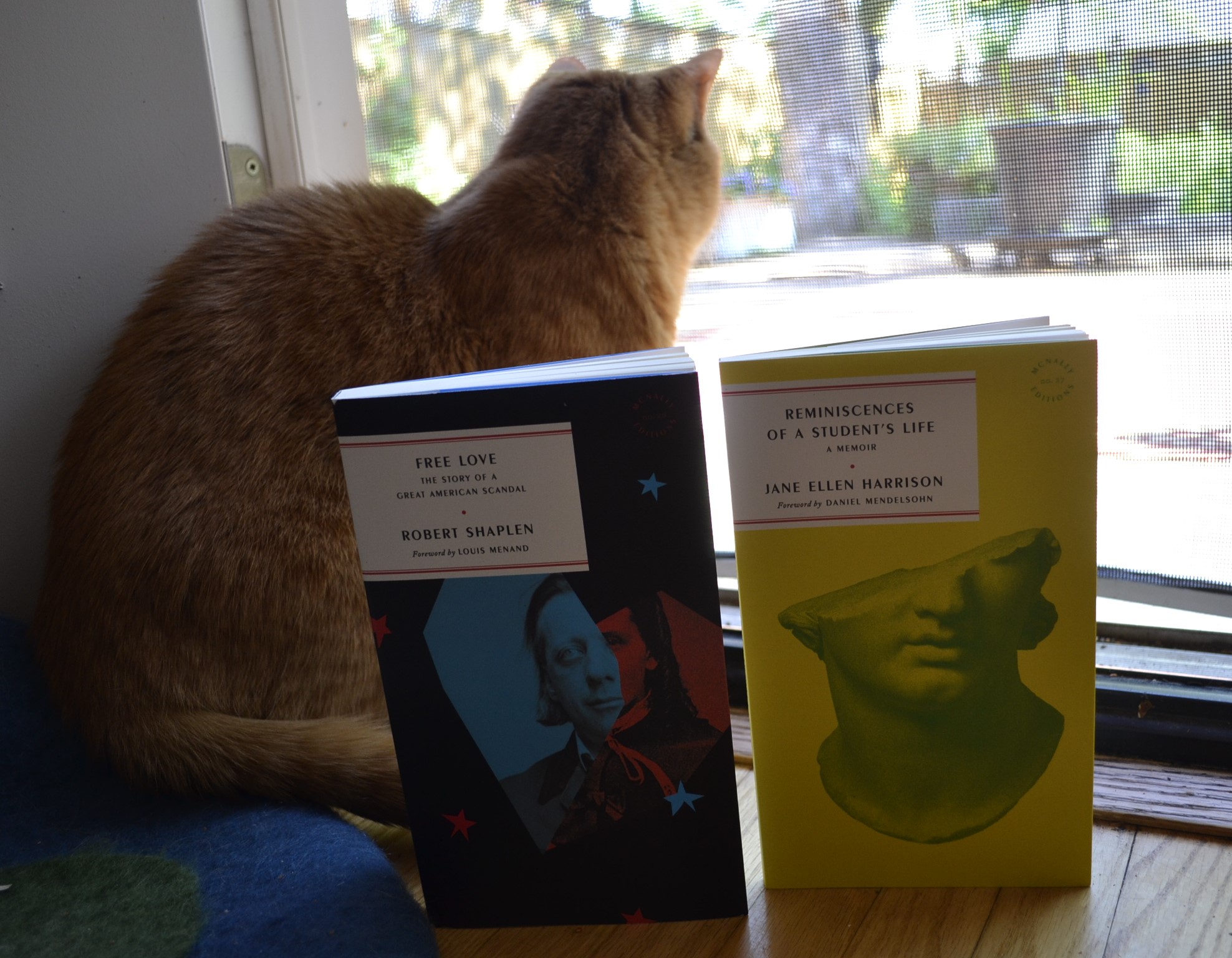May Growth
My lovely spouse had a very pressing deadline which meant we were a bit slow dealing with the yard work this week and, when she mowed today, she definitely felt it. I was listening inside to our little reel mower stop and start and start again as she pushed it through some very lush grass. She was more than a little extra exhausted when she came inside, but we’ve both been so happy at the explosion of life this spring has brought us.
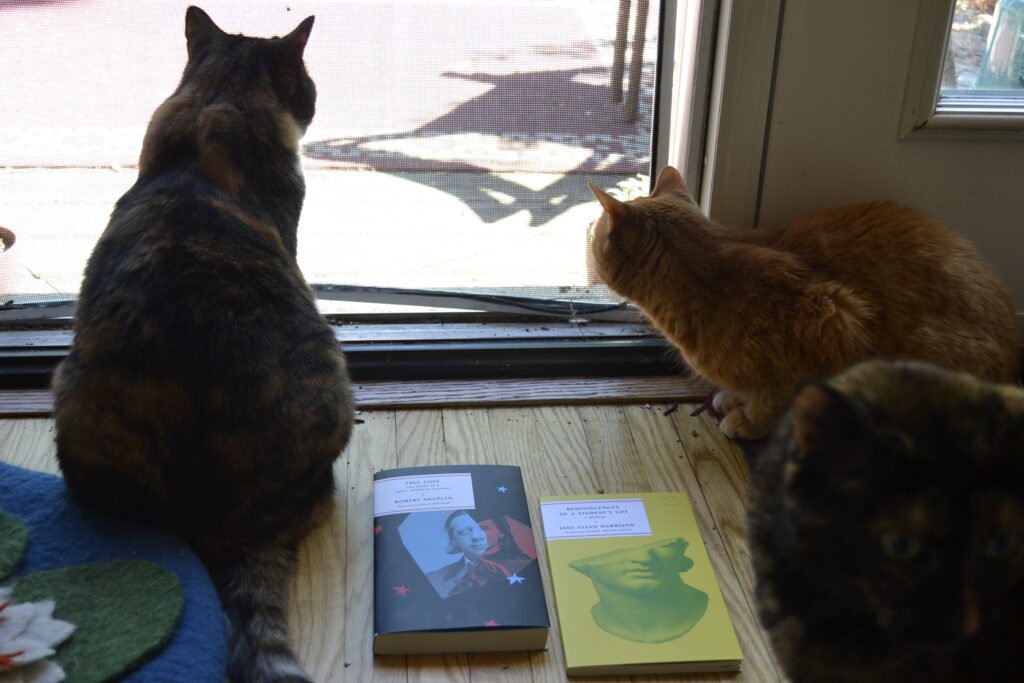
We now have a bunny and a crow that are a constant visitor to my feeder. The dogwood that fate planted last fall has burst into beautiful bloom and is providing a great resource for the birds and the wild rabbits. The starlings are already starting to bring their fluffy, loud babies to the backyard with them. Even some of my lovely spouse’s planting from last year’s seed library is in the act of coming back.
The sad part of the story is that we lost part of our one tree due to a wind-without-thunder storm, which still has me a bit upset. But I am looking forward to researching and replanting a new tree. Maybe something that’s become rare in our area and could use some help coming back.
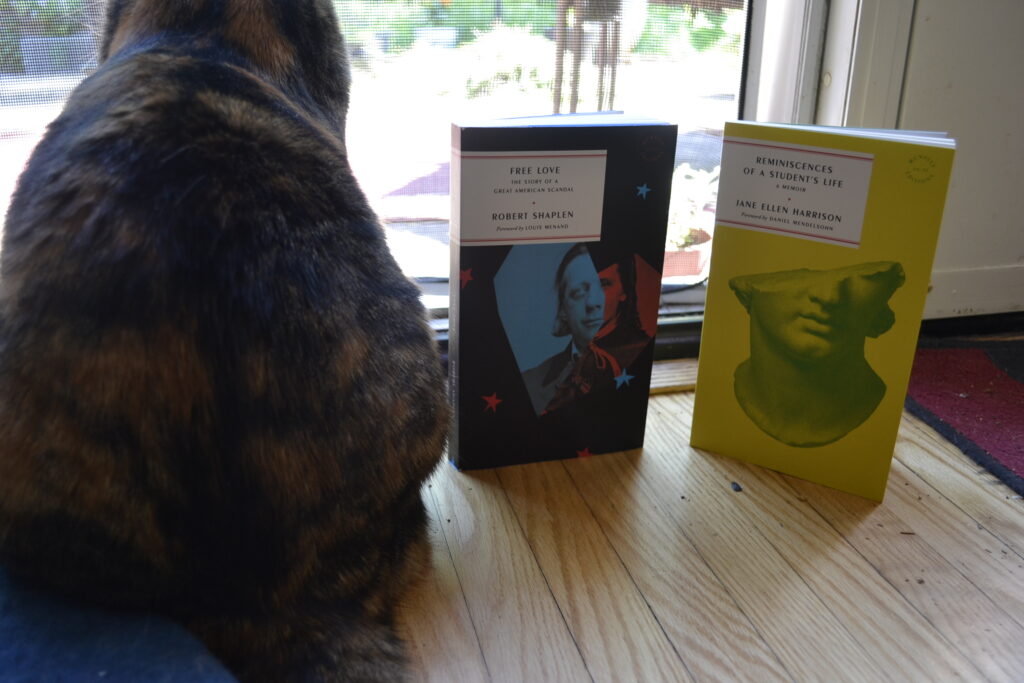
A Double Non-Fiction Feature
McNally Editions has come out with some very interesting books this spring and is the only publisher whose catalogue I pre-order without studying every title carefully. The publisher has done an excellent job of curating forgotten classics, and even when I’m skeptical of the title or the synopsis, I end up learning something from the read or at least filling in some kind of literary blind spot.
This week I’m going to review two McNally selections from earlier this year, both of which are delightful non-fiction reads that I wouldn’t have necessarily chosen off the shelf. Robert Shaplen’s Free Love originally appeared in 1953 as a series of articles in the New Yorker. Based on hoards of written statements, documents, and archival articles, Shaplen both pares down and analyzes the case of Tilton vs. Beecher including how it impacted the daily life of the contemporary Brooklynite. Jane Ellen Harrison’s Reminiscences of a Student’s Life, published in 1922 by the Woolfs, is her personal account of what it was like to be a female classics scholar at the turn of the 20th century, which was not very welcoming to women in academia.
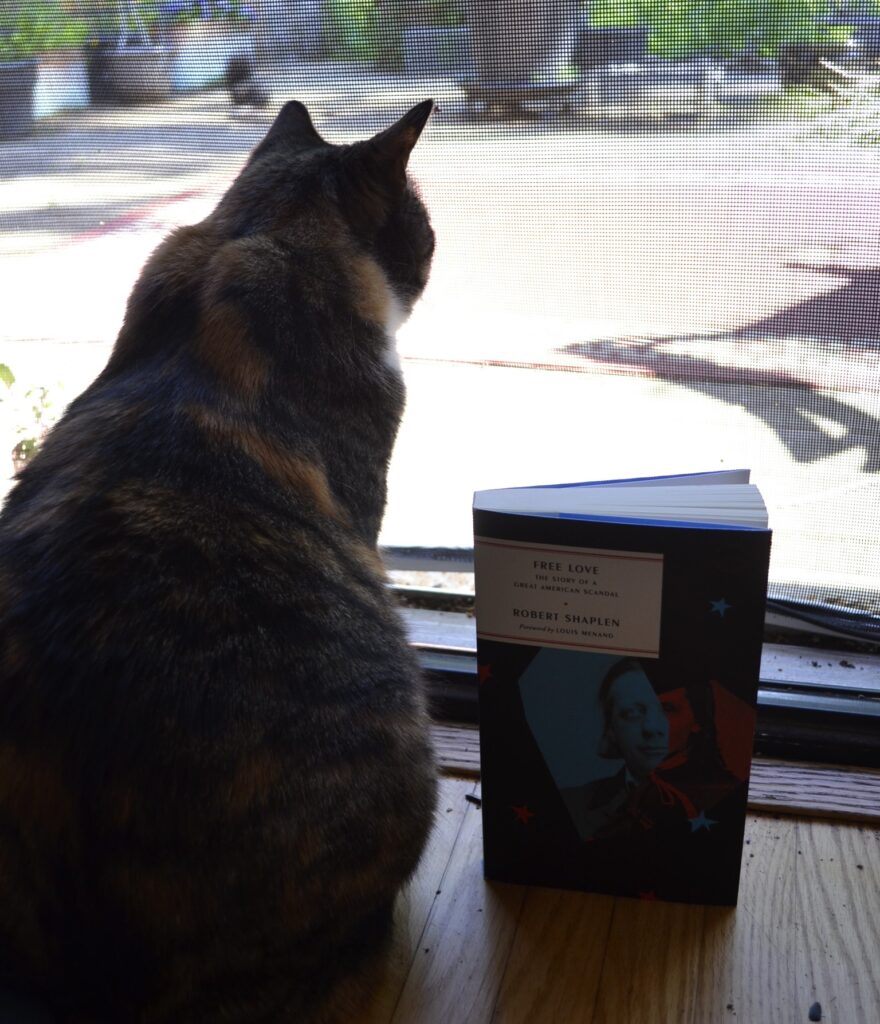
A Series of Articles
Free Love: The Story of a Great American Scandal is best tackled as the analysis both of a court case, it’s preliminaries, and its aftermath both on an individual level and as an event that captivated the public consciousness in 1870s Brooklyn. The court case Shaplen documents involved Theodore Tilton suing his friend and famous reverend Henry Ward Beecher for ‘having stolen the affection of his wife’ (adultery with Mrs Tilton). Shaplen includes a variety of sources, a variety of voices, and a variety of both primary documentation and insightful analysis to bring the case to life. It’s not just about the key players in the drama; it’s about the impact on the women’s suffrage movement, the high society implications, and the eventual destruction of reputations and institutions. Shaplen is very thorough, to the point of including political cartoons — which I greatly enjoyed.
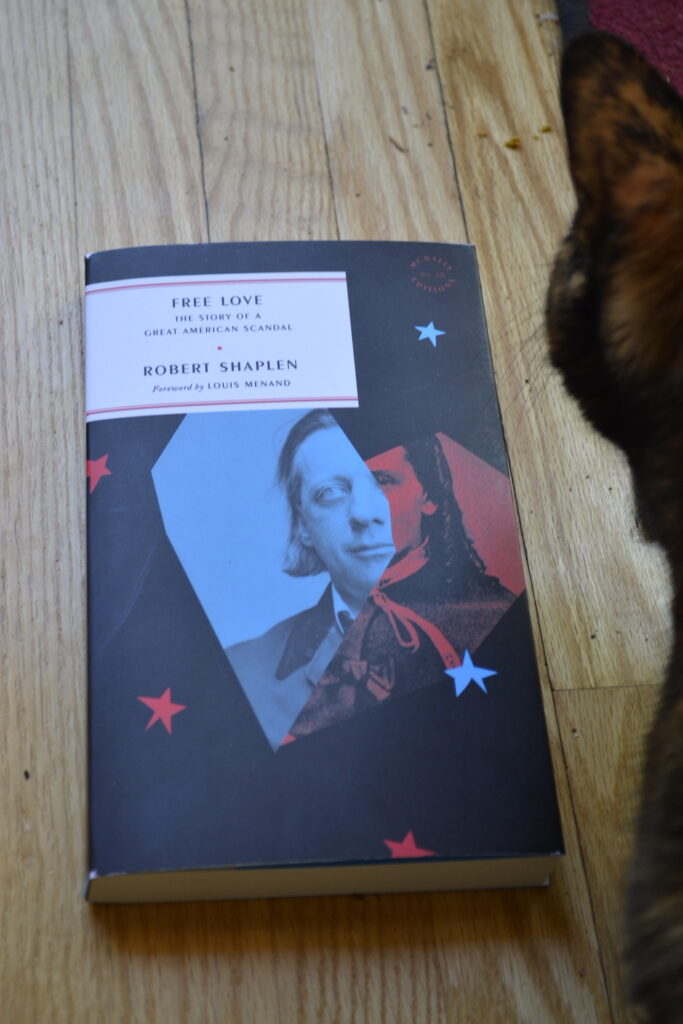
Here we can see the beginnings of what would become modern cultural phenomena — like Hard Copy, or more recently, The Smoking Gun. The reader is asked to question just what is the fascination the public has with scandals along with the elusive and subjective nature of witness testimony. The truth is hard to find, but Shaplen invites the reader to make their own judgement and to examine key evidence for themselves.
I will warn that some chapters can be denser than others, but it only took me an afternoon to finish the book.
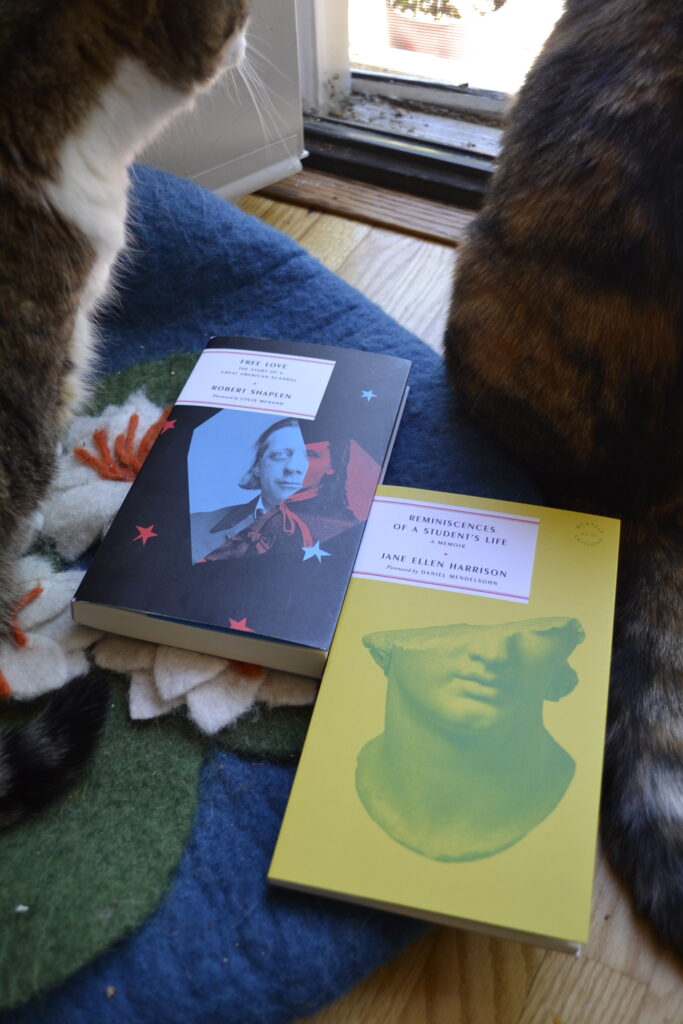
A Student’s Life
Want something that can be finished in even less than an afternoon? Well, at just 84 pages, Jane Ellen Harrison’s Reminiscences of a Student’s Life is one of the shortest selections from McNally Editions. Harrison succinctly takes the reader on a trip through her childhood where she first falls in love with books to her education at Cambridge, and finally her travels through Greece and Russia at the height of her academic career. Along the way, she shares anecdotes that are absolutely delightful, including walking with Tennyson through his garden (where he scolds her for not having his poetry memorized), and entertaining someone who she refers to as the ‘Crown Prince of Japan’.
Harrison’s life is full despite her choices not to marry or have children. She lives on her own terms and without regrets — which is a refreshing perspective considering the time in which she did so. If I have any criticism of the work, it’s that it wasn’t quite long enough. I would have enjoyed more information on her childhood and the first parts of her education. Also, I must point out the obvious, which is that her perspective is limited by her privileged upbringing and by the legacy of Britain’s colonialism.
However, despite these shortcomings, this account is worth the read. Especially if you have any experience in academia.
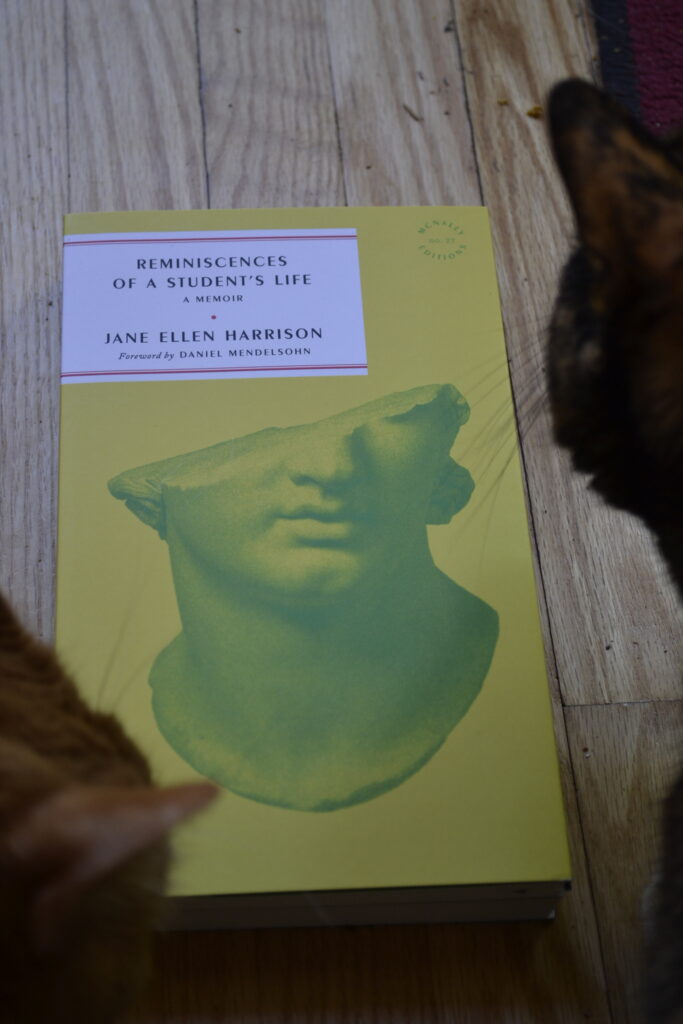
A Very Long Nap
This afternoon we were both tired enough to actually take a two-hour nap, waking up to the light slowly fading across the lawn. Naps are such a double-edged sword for me. A short one is fine, but if I mess up and sleep longer than a half of an hour, I always feel sick and confused and it is so hard to gather any kind of energy afterwards.
My lovely spouse is definitely a glass-half-full kind of person and she thinks of it as ‘we were tired and must have needed the sleep’. She’s not wrong, but I hate dealing with my uncooperative body and mind after sleeping so deeply in the middle of the day. The worst part? I don’t even feel rested. Just like I wasted my time.
